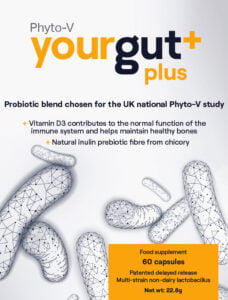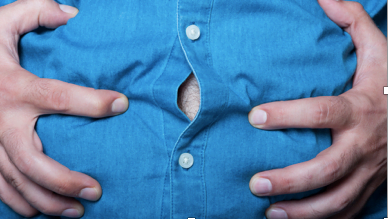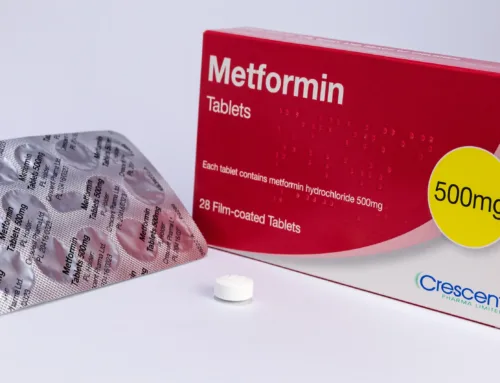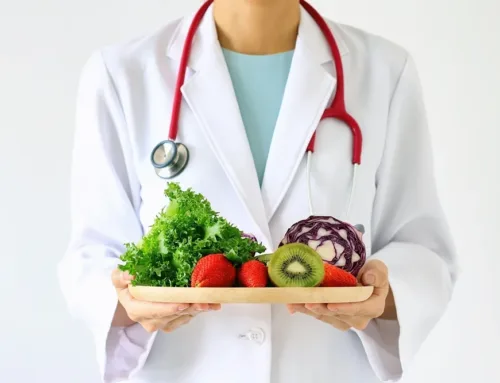There is currently a lot of talk about histamines and long covid based on hearesy rather than firm science. Histamine gets a bad press but it’s important to remember it and other inflammatory chemicals are essential for the efficient function of the immune system. Histamine is one of the early (innate) chemicals which defends the body against viral and bacterial infections including covid. It has other functions such as stimulating stomach acid secretion and gut motility, after a meal, which is crucial for digestive function.
On the other hand, if someone is suffering from chronic excess inflammation, due to genetic factors or exposure to allergens, lifestyle and nutritional choices leading to poor gut health, histamine and other inflammatory chemicals can leak into the blood stream causing headaches, flushing, itchy and malaise (histamine intolerance). Over time chronic excess inflammation will also contribute to many diseases including increased severity of acute covid and a higher chance of developing long covid.
Symptoms of long covid
- Respiratory (breathlessness and cough)
- Cardiovascular (chest tightness, chest pain, palpitations);
- Neurological (cognitive impairment or ‘brain fog’, headache, sleep disturbance, peripheral neuropathy, dizziness
- Gastrointestinal (abdominal pain, nausea, diarrhoea, reduced appetite);
- Musculoskeletal (joint and muscle pain);
- Psychological or psychiatric (depression and anxiety);
- Ear, Nose and Throat (tinnitus, earache, sore throat, dizziness, loss of taste and/or smell);
- Skin rashes, fatigue, fever and pain.
Remove the cause of inflammation rather than reduce histamine containing foods.
The most important cause of histamine excess (intolerance) is poor gut health causing increased permeability (leaky gut). Some people are born with a genetic reduced ability of the body to break down ingested histamine in foods due to reduced diamine oxidase (DAO) levels. In addition, alcohol, sulphites in foods, medications such as nonsteroidal anti-inflammatory drugs (NSAIDs), some antibiotics, and antidepressants can also inhibit the activity of the enzyme which breaks it down.
Some foods trigger histamine symptoms or gut symptoms so it’s useful to look at the diet and try to identify these. The evidence for low histamine food diets, however, is poor and avoidance for any length of time can be difficult to adhere to, particularly when someone is already feeling unwell, and could lead to nutritional deficiencies. An additional difficulty, is the lack of consensus on which foods are high in histamine and lists vary in content. Given the lack of evidence and the associated challenges, elimination of dietary histamine all academic bodies do not currently recommended this strategy for long COVID.
Several lifestyle and dietary factors can improve gut health via a better profile of healthy bacteria including regular exercise, reducing processed sugar intake, eating more fermented foods, prebiotic pulses (which actually contain histamine) and eating more health bacteria. For more details of how to improve gut health – see our gut-health page
Role of probiotics for long covid and gut health
In addition to diet and lifestyle, there are a growing body of well conducted studies reporting a beneficial role for specific scientifically tested probiotics. Certainly not all probiotic supplements are the same, so it’s important to consider only ones which have been formally tested and found to be helpful and safe in people with covid. The probiotic blend picked for the UK National Covid-19 nutritional intervention study now known as Yourgutplus+ mainly contains bacteria that do not increase, local gut, histamine such as lactobacillus paracasi, Lactobacillus rhamnosus and Lactobacillus.
That said, the complete avoidance of probiotic bacteria which contain small amount of histamine producing bacteria has been overstated. Certainly, the scientific committee of the Phyto-V study (see below), who did extensive research on this issue, did not want to completely restrict the blend, used in the study, to non-histamine producing bacteria as other strains such as bulgaricus. This probiotic, along with the other lactobacillus in Yourgutplus+ have reported good improvements in gut health, which ultimately reduce leakage of histamine into the body, in the longer term – the most important factor.
What’s more, vitamin D, inulin and the other prebiotics in phyto-v also help restore gut health and reduce systemic (whole body) inflammation – read more
Gut health, probiotics and covid – evidence:
It is known that most patients with covid experience a varying degree of gut damage caused in part by over growth of pro-inflammatory (histamine producing) bacteria. To date the most significant evidence for the use of probiotics and phytochemical rich food supplements come from the UK phyto-v study. They tested two supplements Yourgutplus+ and phyto-v in a large randomised group of people with symptomatic covid infection. The results of this government approved, double blind randomised controlled trial (RCT) published this year showed a significant improvement for the majority with the yourgutplus+ but and even great benefit if combined with the phytochemical rich supplement phyto-v. Interestingly, the level of benefit was higher amount participants who had factors which correlated with poor gut health (remember these people are more likely to be histamine intolerant) – This is best evidence so far.
So in summary, if you are concerned about probiotics and histamines, it is best to stick to low histamine blend such as Yourgutplus+ which has also been formally evaluated in a robust national RCT. This supplement, especially in combination with the Phyto-V, was shown not only safe but beneficial. Finally, it’s important to always consider supplements along side other lifestyle strategies to improve gut health.
Reference sources:

Russo E et al: The interplay between the microbiome and immune response. Therapy Adv Gastrol 9:594, 2016.
Thomas R, Aldous J, Forsyth R, Chater A, Williams M (2021) The Influence of a blend of Probiotic Lactobacillus and Prebiotic Inulin (Yourgutplus+) on the Duration and Severity of Symptoms among Individuals with Covid-19. Infect Dis Diag Treat 5: 182. DOI: 10.29011/2577-1515.100182
Thomas, R.; Williams, M.; Aldous, J.; Yanagisawa, Y.; Kumar, R.; Forsyth, R.; Chater, A. A Randomised, Double-Blind, Placebo-Controlled Trial Evaluating Concentrated Phytochemical-Rich Nutritional Capsule in Addition to a Probiotic Capsule on Clinical Outcomes among Individuals with COVID-19—The UK Phyto-V Study. COVID 2022, 2, 433-449. https://doi.org/10.3390/covid2040031
Maintz, L and Novak, N. (2007) Histamine and histamine intolerance. Am J Clin Nutr. 85(5):1185-1196.
Izquierdo-Casas, J. et al. (2018) Diamine oxidase (DAO) supplement reduces headache in episodic migraine patients with DAO deficiency: A randomized double-blind trial. Clin Nutr. doi: 10.1016/j.clnu.2018.01.013. [Epub ahead of print].
Kung, HF. et al. (2017) Degradation of histamine by Lactobacillus plantarum isolated from Miso products. J Food Prot. 80(10):1682-1688. doi: 10.4315/0362-028X.JFP-17-135.
Oksaharju, A. et al. (2011) Probiotic Lactobacillus rhamnosus downregulates FCER1 and HRH4 expression in human mast cells. World J Gastroenterol. 17(6): 750-759. doi: 10.3748/wjg.v17.i6.750.
Spiller, R. (2008), Review article: probiotics and prebiotics in irritable bowel syndrome. Alimentary Pharmacology & Therapeutics, 28: 385–396. doi: 10.1111/j.1365-2036.2008.03750.x
National Institute for Health and Care Excellence (NICE). COVID-19 rapid guideline: managing the long-term effects of COVID-19 (NG188): Evidence reviews 6 and 7: monitoring and referral. 2020.
Jacobson KB, Rao M, Bonilla H, Subramanian A, Hack I, Madrigal M, et al. Patients with uncomplicated COVID-19 have long-term persistent symptoms and functional impairment similar to patients with severe COVID-19: a cautionary tale during a global pandemic. Clin Infect Dis. 2021.
Greenhalgh T, Knight M, A’Court C, Buxton M, Husain L. Management of post-acute COVID-19 in primary care. BMJ. 2020;370:m3026.
Comas-Basté O, Sánchez-Pérez S, Veciana-Nogués MT, Latorre-Moratalla M, Vidal-Carou MDC. Histamine Intolerance: The Current State of the Art. Biomolecules. 2020;10(8).
Reese I, Ballmer-Weber B, Beyer K, Fuchs T, Kleine-Tebbe J, Klimek L, et al. German guideline for the management of adverse reactions to ingested histamine: Guideline of the German Society for Allergology and Clinical Immunology Allergo J Int. 2017;26(2):72-9.
Maintz L, Novak N. Histamine and histamine intolerance. Am J Clin Nutr. 2007;85(5):1185-96.






Leave A Comment